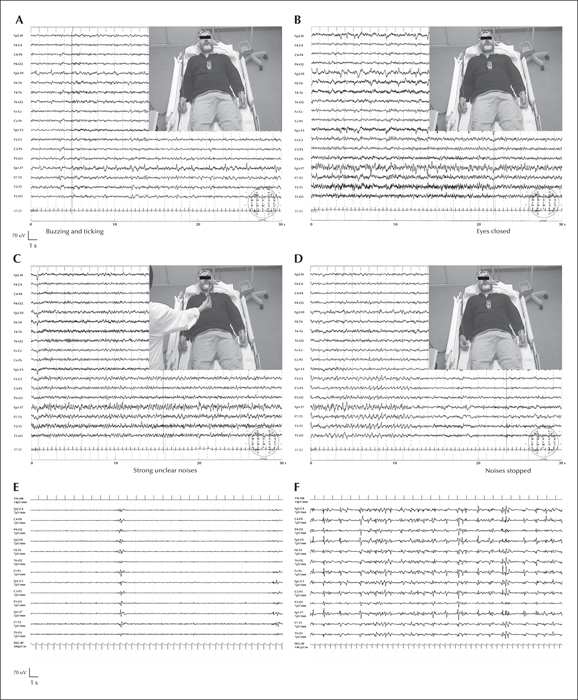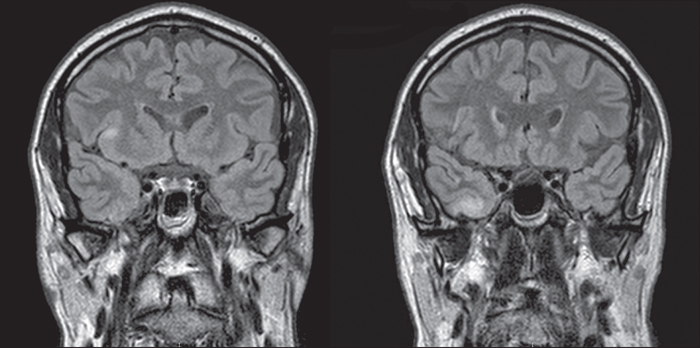Epileptic Disorders
MENUAuditory seizures in autoimmune epilepsy: a case with anti-thyroid antibodies Volume 19, numéro 1, March 2017
- Mots-clés : Hashimoto's encephalopathy, autoimmune encephalopathy, status epilepticus, anti-thyroid antibodies
- DOI : 10.1684/epd.2017.0904
- Page(s) : 99-103
- Année de parution : 2017
In its classic presentation, Hashimoto's encephalopathy is an acute-subacute complex neuropsychiatric syndrome with cognitive impairment, hallucinations, myoclonus, tremor or ataxia, associated with elevated anti-thyroid antibodies. Corticoids and immunotherapy are dramatically effective. However, in some cases, not all the associated features are presented and this delays diagnosis and appropriate treatment. We describe a man with abrupt onset of recurrent auditory seizures resulting in refractory non-convulsive status epilepticus. The patient was diagnosed with an autoimmune encephalopathy with elevated serum and CSF anti-thyroid antibodies. None of the antiepileptic drugs were successful, however, following immune-modulating therapy, the refractory non-convulsive status epilepticus dramatically improved, as did the patient overall. We suggest that Hashimoto's encephalopathy should be suspected in otherwise healthy patients with unexplained new-onset focal recurrent auditory seizures which do not respond to antiepileptic drugs. The presence of anti-thyroid antibodies in the CSF supports this diagnosis.



